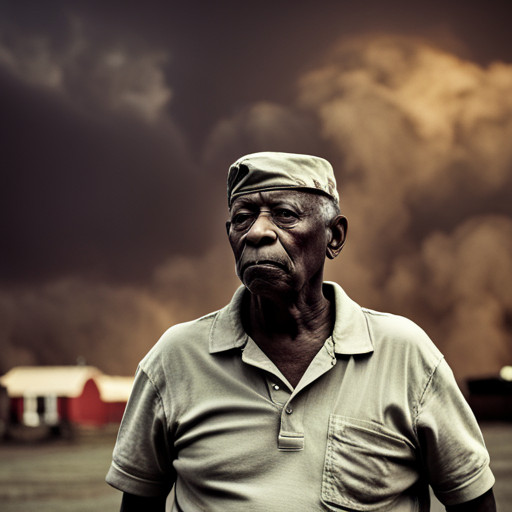Camp Lejeune Water Contamination Impact on Veterans Families
Through decades of water contamination at Camp Lejeune, a Marine Corps base, millions of Americans faced exposure to carcinogenic substances. The potential health implications include leukemia, kidney cancer, and Parkinson's disease.

The Camp Lejeune Justice Act, in tandem with the Honoring Our Pact Act, now grants survivors and their families the right to seek legal redress against the federal government.
This article explores the historical context, health impact, legal recourse, and personal narratives associated with this significant public health issue.
Key Takeaways
- Marine veterans and their families may have developed cancer or other diseases from drinking Camp Lejeune water.
- The USMC and Navy failed to inform those at Camp Lejeune about the cancer-causing water for over three decades.
- Millions of Americans who passed through Camp Lejeune were exposed to contaminated water that can cause cancer.
- Camp Lejeune survivors can now file a lawsuit for compensation against the federal government for wrongful cancer deaths.
The History and Overview of Camp Lejeune Water Contamination

The history of Camp Lejeune water contamination spans over three decades. During this time, millions of Marine veterans and their families were unknowingly exposed to hazardous substances such as Trichloroethylene (TCE), tetrachloroethylene (PCE), vinyl chloride (VC), and benzene.
The impact on public health has been profound. There are potential links between the exposure to these substances and various types of cancer and Parkinson's disease. The long term consequences of this exposure are still being explored. However, evidence indicates a significant increase in disease prevalence among those exposed.
It is suggested that the delay in identifying and mitigating the contamination may have exacerbated these health outcomes. The subsequent legal and medical discourse surrounding this event has underscored the need for vigilant monitoring and reporting of environmental hazards in military and civilian locations alike.
The Link Between Camp Lejeune Water Contamination and Disease

Exposure to the toxic substances found in the military base's drinking water has been linked to a range of serious illnesses, including various forms of cancer and neurodegenerative diseases. The long term health effects of Camp Lejeune water contamination are a source of enduring concern, with many veterans and their families suffering the consequences of exposure.
Studies have indicated a correlation between the contaminated water and conditions such as adult leukemia, kidney cancer, and Parkinson's disease. However, there remains a significant lack of accountability for the Camp Lejeune water contamination. Despite the establishment of the Camp Lejeune Justice Act, which aims to provide recourse for affected individuals, questions persist about the extent of the damage and the adequacy of efforts to redress this significant public health issue.
Legal Actions and Compensation for Victims of Camp Lejeune Water Contamination

Legal recourse for those adversely affected by toxic exposure at the military base has been made possible through the enactment of the Justice Act. Through this legislation, survivors of the Camp Lejeune water contamination can seek compensation options for diseases linked to exposure.
It has been observed that victims, including veterans and their families, may qualify for legal action if afflicted by specified diseases. The Act enables survivors to employ legal representation, such as a Camp Lejeune cancer attorney, to guide their lawsuit.
Compensation options under the Act cover a wide range of diseases, providing a pathway for redress for those affected.
The Justice Act, therefore, represents a significant development in addressing the longstanding health crisis stemming from Camp Lejeune's water contamination.
Unraveling the Camp Lejeune Justice Act

Understanding the intricacies of the Justice Act is essential to comprehend the legal recourse available for those affected by toxic exposure at military bases. This legislation holds paramount importance in establishing government accountability and determining compensation eligibility for victims of Camp Lejeune water contamination.
* The Act provides a legal platform for victims to seek justice and compensation for their suffering.
* It enforces government accountability for negligence in maintaining water quality at military bases.
* The Act establishes clear guidelines for compensation eligibility for individuals affected by toxic exposure.
* It provides a pathway for victims to take collective action against government negligence.
* The Act is a monumental step towards acknowledging and rectifying the damage inflicted on military personnel and their families due to toxic exposure.
Personal Stories: Survivors and Their Families Share

Personal narratives from survivors and their relatives offer a poignant perspective on the extensive harm caused by toxic exposure at various military bases. These personal testimonies provide an intimate account of the long-term health effects experienced by those exposed to hazardous substances. The recounted experiences often reveal an array of health complications, including various forms of cancer, neurological disorders, and other severe conditions.
The narratives frequently underscore the delayed onset of these health effects, which often surface years, even decades after exposure. The testimonies also highlight the emotional turmoil experienced by survivors and their families, particularly in light of the often prolonged and arduous battle for recognition and compensation.
As such, these personal narratives are central to understanding the extensive and enduring impact of toxic exposure on military personnel and their families.
The Hidden Impact on Children Born at Camp Lejeune

Research indicates a heightened risk of illness among offspring conceived or delivered at military bases with reported toxic exposure. The impact on future generations is profound, with long term health effects becoming increasingly apparent. Specifically, children born at Camp Lejeune, a military base notorious for its contaminated water, demonstrate this trend.
- Evidence suggests a correlation between exposure to Camp Lejeune's water contamination and subsequent health complications in children born at the base.
- These children may face increased susceptibility to various cancers and diseases.
- The elevated risk extends to congenital disabilities, with a range of physical and developmental issues reported.
- Studies indicate a potential transgenerational effect, affecting not only those directly exposed but future generations as well.
- This underscores the need for comprehensive healthcare provisions and compensation schemes for affected families.
The Role of Legal Firms in Camp Lejeune Justice Act Claims

Legal firms play a crucial role in facilitating Justice Act Claims, providing essential legal representation and guidance for survivors and their families seeking compensation for diseases linked to toxic exposure. The role of legal firms extends to interpreting complex legal provisions, gathering necessary evidence, and presenting compelling arguments to support claims.
The importance of legal representation is underscored by the technical nature of such claims, which require an in-depth understanding of legal, medical, and scientific facts. Legal firms, by virtue of their expertise, are well-positioned to navigate these complexities and advocate for survivors' rights.
Their contribution to the Justice Act Claims process is instrumental in ensuring that justice is served and survivors receive the compensation to which they are entitled.
Understanding the Bellwether Trials and Their Impact

Transitioning from the role of legal firms in handling Camp Lejeune Justice Act claims, attention needs to be directed towards understanding the bellwether trials and their impact on these proceedings. Bellwether trials hold significant value in legal proceedings as they can potentially outline the trajectory of future cases related to the same issue. In the context of the Camp Lejeune water contamination cases, these trials could provide a crucial benchmark for potential outcomes and implications.
The significance of bellwether trials in legal proceedings cannot be underestimated. They serve several crucial functions, including:
- Guiding the settlement of ensuing similar lawsuits
- Providing a better understanding of the strengths and weaknesses of the cases
- Offering insights into how juries might react to the presented evidence and arguments
- Helping identify trends and patterns that could affect decisions in subsequent cases
- Setting precedents that can influence the course of future litigation.
The Connection Between Parkinson’s Disease and Camp Lejeune Water Contamination

Establishing a link between Parkinson's disease and exposure to toxins in a military base's water supply provides a new dimension to the ongoing investigations. Studies have indicated the presence of Parkinson's disease symptoms in veterans exposed to the contaminated water at Camp Lejeune.
These symptoms include motor complications such as rigidity, bradykinesia, and postural instability, along with non-motor symptoms like cognitive impairment and mood disorders. The long term effects of Camp Lejeune water contamination, compounded by the latency period of Parkinson's disease, suggest a complex interaction between environmental factors and individual susceptibility.
An increased incidence of Parkinson's disease in this population necessitates further investigation into the potential neurotoxic effects of these water contaminants.
Privacy Concerns and Legal Disclaimers Related to Camp Lejeune Cases

In the realm of privacy concerns and legal disclaimers related to certain cases, it is crucial to note that information shared by claimants is subject to both data protection laws and the specific privacy policies of the legal entities involved. The following points articulate this:
- Analyzing privacy concerns, it is observed that data is protected under stringent laws, with a firm commitment to confidentiality.
- Legal disclaimers stipulate that the website uses cookies for purposes such as advertising and analytics.
- User consent for the use of cookies is implied through continued use of the site.
- Legal disclaimers also highlight that past case results do not guarantee future outcomes.
- The choice of legal representation should not be based solely on advertisements, reinforcing the importance of informed decision-making in legal matters.
Frequently Asked Questions
What Are the Long-Term Health Effects on Veterans Who Were Exposed to the Contaminated Water at Camp Lejeune?
Long-term health effects in veterans exposed to Camp Lejeune's contaminated water include various cancers and diseases. The contamination timeline spans decades, raising legal implications such as potential compensation claims against the federal government for wrongful cancer deaths.
Are There Any Support Groups or Resources Available for Families Affected by the Camp Lejeune Water Contamination?
Several resources exist for families affected by water contamination, providing emotional trauma support and legal assistance options. These include veteran support organizations, specialized counselling services, and law firms experienced in environmental contamination litigation.
How Does the Compensation Process Work for Those Who Have Been Affected by the Water Contamination at Camp Lejeune?
The compensation process for those impacted by water contamination at Camp Lejeune involves establishing claim eligibility through documented illness and service records, followed by potential legal challenges navigating complex tort laws and federal regulations.
What Is the Average Compensation Amount for Victims of the Camp Lejeune Water Contamination?
The average compensation amount for victims of water contamination varies, dependent on factors such as disease severity and individual circumstances. Compensation eligibility and legal avenues are determined through intricate legal procedures and legislative stipulations.
How Many People Are Estimated to Have Been Affected by the Water Contamination at Camp Lejeune?
The contamination source at Camp Lejeune reportedly affected between 500,000 to 1,000,000 people. Preventive measures were not implemented promptly, leading to prolonged exposure to harmful substances in the water supply.

This post has been generated by AI and was not reviewed by editors. This is Not legal advice. Please consult with an attorney.




